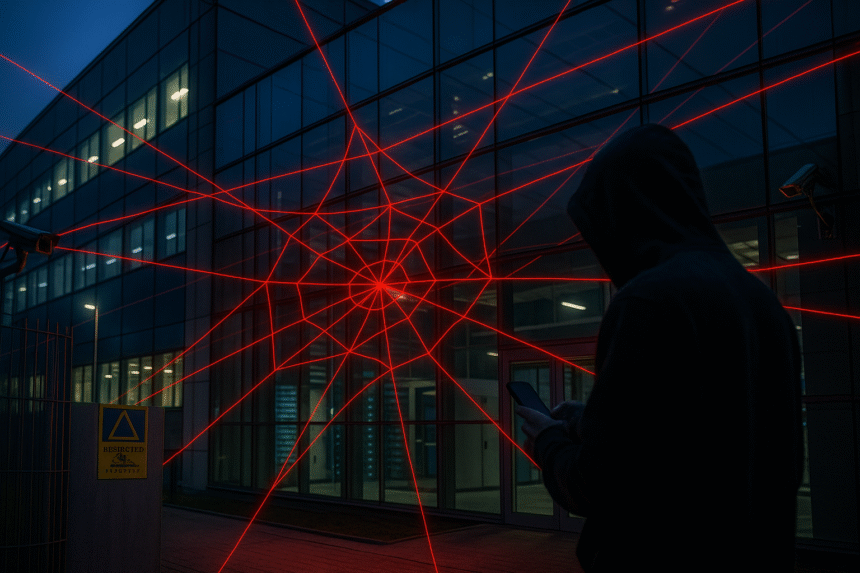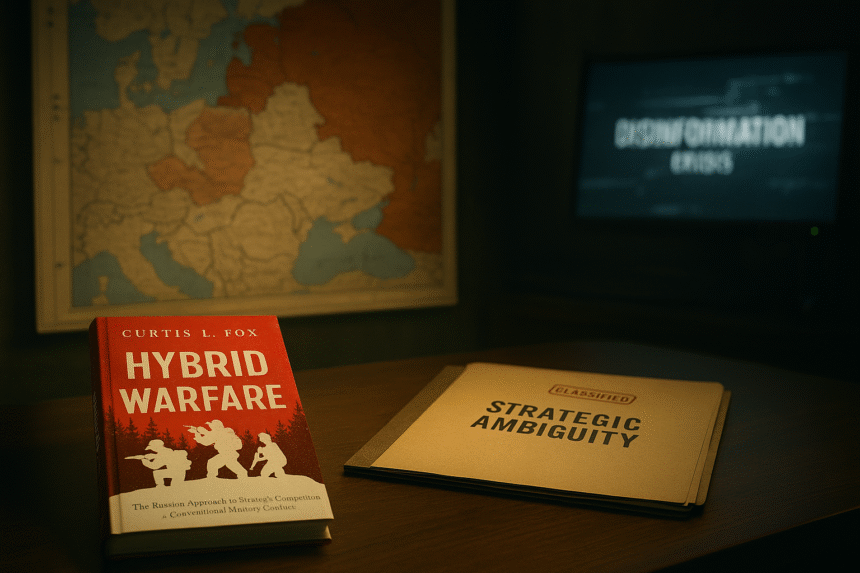Introduction: The War You Don’t See
You won’t find them on the battlefield. No uniforms. No flags. No official existence. But GRU Unit 54777 is arguably one of the most dangerous formations in Russia’s military arsenal. While tanks roll and missiles fly, this unit fights on a different front — one made of headlines, hashtags, and hacked minds.
Formally known as the 72nd Special Service Centre, Unit 54777 is the Kremlin’s secret psychological warfare division. From the war in Ukraine to the streets of Berlin, its campaigns don’t just distort facts — they destabilise entire societies. This is not information warfare as a metaphor. It is a doctrine, refined over decades, deployed in real-time, and aimed directly at the fault lines of Western civilisation.
Welcome to the invisible front — where the war is for your perception, and victory means you never knew it happened.
From GlavPUR to 54777: A Soviet Legacy Reborn
The story of GRU Unit 54777 begins in the ashes of the Soviet Union, but its tactics stretch back even further — to the Red Army’s GlavPUR (Main Political Department), the body responsible for ideological indoctrination and “special propaganda” during the Cold War. When the USSR collapsed, military doctrine adapted but didn’t vanish. The architects of the new Russian Federation realised that in a globalised media landscape, information itself could become a weapon.
Unit 54777 was formalised in the early 1990s as a continuation of Soviet influence operations. But unlike its predecessor, it was designed for an era where wars could be won without firing a shot — by seeding confusion, inflaming tensions, and making populations doubt their own institutions.
“We do not need to defeat NATO militarily. We only need to defeat their will.”
— Russian military strategist (translated from internal doctrine, 2004)
The unit functions as a psychological warfare hub within the GRU, Russia’s military intelligence agency, headquartered at Khoroshevskoye Shosse in Moscow. It has no public-facing operations, no disclosed leadership structure, and no official budget. But its fingerprints are everywhere.
Tools of Influence: Front Groups and Foreign “News”
Unit 54777 does not operate in the open. Instead, it controls a constellation of front organisations, “independent” think tanks, and media outlets designed to camouflage state propaganda as grassroots opinion. Key among them are:
- InfoRos – A disinformation portal operating in multiple languages. According to U.S. intelligence, InfoRos has pushed COVID-19 conspiracies, anti-NATO narratives, and anti-Ukrainian content across Europe and Latin America.
- The Institute of the Russian Diaspora – Posing as a cultural NGO, it engages in narrative laundering by pushing messages of “Russian victimhood” and “Western aggression” into émigré communities.
- The Foundation for Supporting and Protecting the Rights of Compatriots Living Abroad – A Kremlin-backed group used to justify interventions in neighbouring states under the guise of protecting “oppressed” Russians.
These organisations publish op-eds, hold conferences, and circulate polished infographics to sway public opinion. Often, their materials cite one another, forming a self-reinforcing cycle of disinformation that, at first glance, appears to be a consensus.
Real Operations, Real Impact: Case Studies in Chaos
GRU Unit 54777 is not a theoretical risk. Its campaigns have altered the media landscape in nearly every theatre of Russian geopolitical interest. Among its most documented operations:
1. Chechnya (1999–2009):
54777 launched psychological operations portraying Chechens as Islamic extremists and terrorist threats. It simultaneously suppressed reports of Russian atrocities, using doctored footage and false eyewitnesses. Western media often echoed the Kremlin narrative due to lack of access.
2. Georgia (2008):
In the run-up to the invasion, the unit flooded Russian and international media with claims of Georgian attacks on civilians. Fabricated videos and staged interviews were released to justify Russian intervention. The NATO response was fractured and delayed.
3. Ukraine (2014–Present):
From the Crimean “referendum” legitimacy to the infamous “baby crucified by Ukrainians” hoax, Unit 54777 has coordinated countless psychological campaigns. Telegram bots, translated disinfo articles, and seeded content in fringe Western outlets all trace back to GRU-linked digital farms.
“These narratives are not random. They are weaponised psychology, designed to polarise, disorient, and paralyse.”
Cyber Integration and Digital Psyops
While 54777 is primarily a psychological unit, its methods increasingly intersect with Russia’s cyber warfare operations. Joint missions with APT28 (Fancy Bear) — another GRU unit — reveal a coordinated structure in which narrative campaigns follow cyber intrusions.
- In Estonia (2007), Russian hackers crippled government servers — while Unit 54777 spread false stories of anti-Russian discrimination and staged protests.
- During France’s 2017 election, phishing attacks against Emmanuel Macron were accompanied by a deluge of anti-Macron posts across bot networks linked to InfoRos.
The goal is always the same: destabilise, divide, and delay any unified Western response.
Leadership and Doctrine
One of the few publicly named commanders of Unit 54777 is Colonel Aleksandr Starunsky, later appointed as a scientific advisor to Russia’s Security Council. He has been linked to strategic influence campaigns targeting Europe’s pandemic response, including efforts to discredit Western vaccines.
According to leaked internal guidance documents, the unit’s operational doctrine defines “victory” not as convincing the West of Russia’s views, but as making coherent debate impossible. In this worldview, truth is not a fact, but a front.
Europe’s Vulnerability: A Crisis of Resistance
The most alarming reality is not the existence of Unit 54777, but Europe’s failure to stop it. With media ecosystems hollowed out, critical thinking eroded by cultural relativism, and legal frameworks unprepared for non-kinetic warfare, the EU has become a soft target for Russia’s psychological campaigns.
“Freedom of speech has become a Trojan horse for state-sponsored subversion.”
Efforts like the East StratCom Task Force are underfunded and politically constrained. Meanwhile, Moscow spends hundreds of millions annually on information warfare, with no democratic oversight.
The War for Your Mind
GRU Unit 54777 is not merely a propaganda division — it is a hybrid warfare unit weaponising psychology, media, and perception itself. Its operations reveal a truth we’ve been reluctant to admit: modern conflict does not always begin with bombs. Sometimes, it starts with a headline. A meme. A comment thread.
And by the time you realise a war is happening, it’s already too late.














